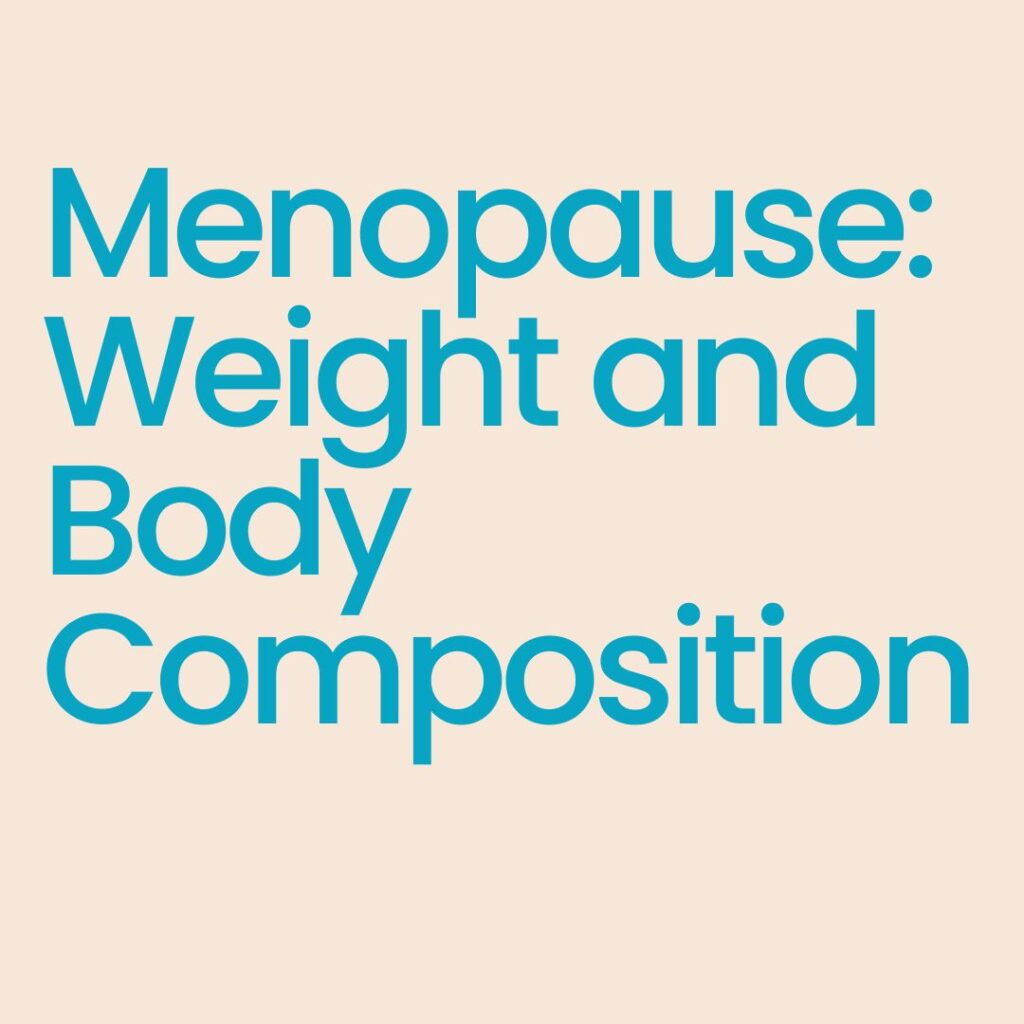S. R. Davis, C. Castelo-Branco, P. Chedraui, M. A. Lumsden, R. E. Nappi, D. Shah, P. Villaseca & as the Writing Group of the International Menopause Society for World Menopause Day 2012 (2012) Understanding weight gain at menopause, Climacteric, 15:5, 419-429, DOI: 10.3109/13697137.2012.707385
Menopause and Weight

Posted On: January 8, 2023 -
Posted By:
There are a number of factors that can contribute to weight gain during menopause.
As mentioned in earlier blog posts, Menopause is a time where women’s Estrogen decreases. Estrogen is an important hormone that facilitates many of our bodily functions including thermoregulation and body temperature; and metabolism. A deficiency in Estrogen, especially if significant and rapid, may result to unwanted symptoms including slowed metabolism
When your metabolism is slow, you tend to feel sluggish and easily gain weight. Moreover, this leads to changes in a woman’s body composition with an increase in fat mass and a decrease in lean mass. It has been well established that weight gain is a physical change common in many women during menopause (Davis, et. al.; Kodoth, Scaccia and Aggarwal; Woods, et.al.)
Several studies have shown that perimenopause (which is that period before menopause) independent of age, is associated with increased fat in the abdomen as well as decreased lean body mass (Lovejoy, et. al.)
Lifestyle factors may also contribute to weight gain during menopause including decrease in physical activity, an increase in stress, and changes in sleep patterns. It’s important to note that every woman is different, and not all women gain weight during menopause.
Consult your physician if you are experiencing menopause symptoms.
Sources:
Kodoth V, Scaccia S, Aggarwal B. Adverse Changes in Body Composition During the Menopausal Transition and Relation to Cardiovascular Risk: A Contemporary Review. Womens Health Rep (New Rochelle). 2022 Jun 13;3(1):573-581. doi: 10.1089/whr.2021.0119. PMID: 35814604; PMCID: PMC9258798.
Woods, R., Hess, R., Biddington, C. et al. Association of lean body mass to menopausal symptoms: The Study of Women’s Health Across the Nation. womens midlife health 6, 10 (2020). https://doi.org/10.1186/s40695-020-00058-9
Lovejoy JC, Champagne CM, de Jonge L, Xie H, Smith SR. Increased visceral fat and decreased energy expenditure during the menopausal transition. Int J Obes (Lond). 2008 Jun;32(6):949-58. doi: 10.1038/ijo.2008.25. Epub 2008 Mar 11. PMID: 18332882; PMCID: PMC2748330.
